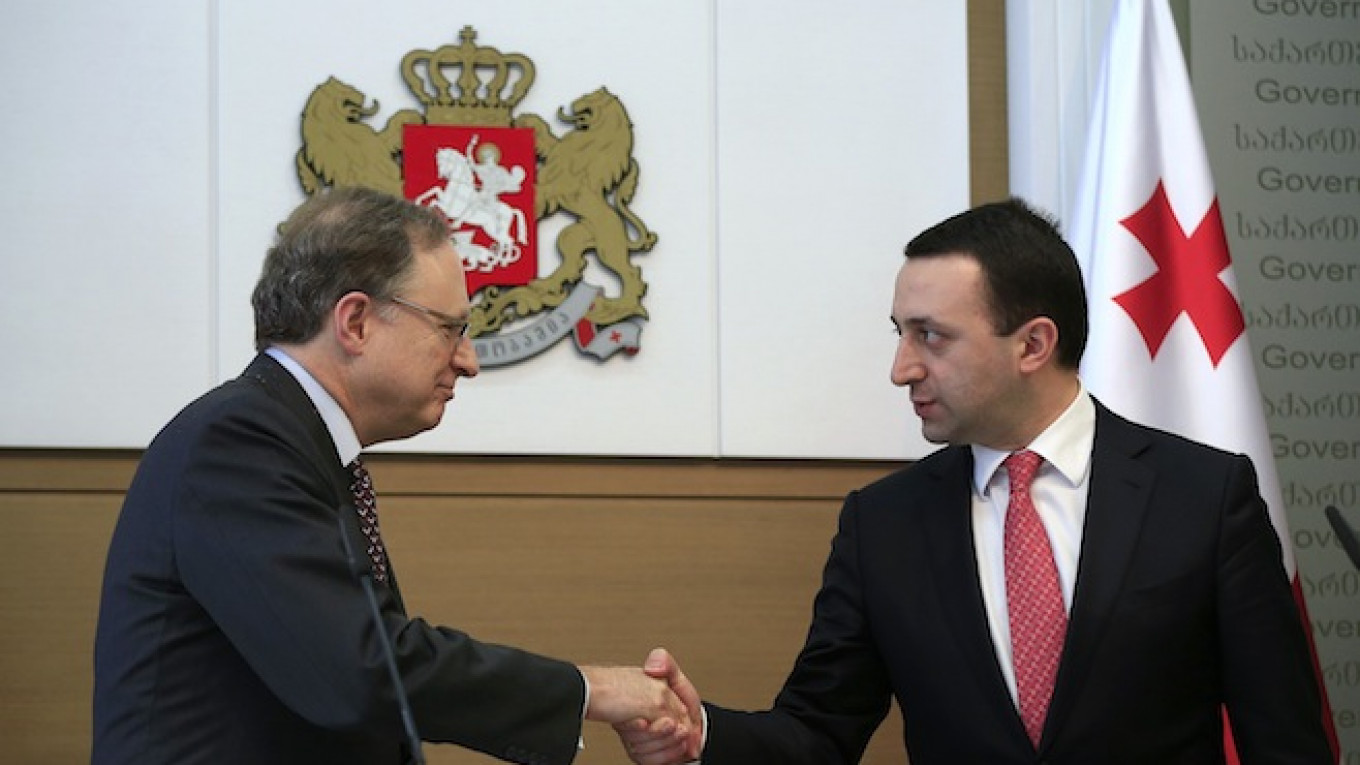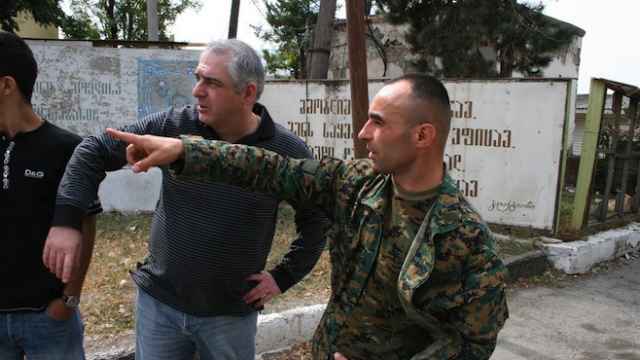TBILISI — Georgia has condemned the signing of a border agreement between its breakaway region of South Ossetia and Russia, accusing Moscow of moving closer to annexing a territory it supported in a five-day conflict in 2008.
Georgia, which has ambitions to join NATO, and Russia fought that war over South Ossetia and another separatist region, Abkhazia. After it ended, Moscow recognized both regions as independent countries.
Moscow went further by signing a "strategic partnership" agreement with Abkhazia last November, seven months after annexing Ukraine's Crimea peninsula and throwing its weight behind separatists battling in eastern Ukraine.
Russia says it wants to sign a similar document to integrate its security forces and military with South Ossetia's, and Foreign Minister Sergei Lavrov signed a preliminary agreement with his counterpart in the separatist region on Wednesday.
"It's yet another action directed against the sovereignty and territorial integrity of Georgia and an attempt to artificially redraw internationally recognized borders," the Georgian foreign ministry said Thursday.
The Russian Foreign Ministry had no immediate comment on the remarks.
Abkhazia and South Ossetia survive on financial support from Russia, and Moscow has promised not to cut aid for Abkhazia this year.
Lavrov also said Wednesday that Russia would "take measures to prevent the negative effect of attempts to drag Tbilisi into NATO."
Georgia, a South Caucasus country crossed by pipelines that carry Caspian oil and gas from Azerbaijan to Europe, said on Thursday that Russia was a threat to stability in the region and had no influence on the process of Georgia's integration into NATO.
Tbilisi's government has long hoped to join the military alliance, and NATO has agreed in principle that it should one day become a member and plans to open a training center in Georgia by the end of the year.
Analysts say the integration process has been delayed by member countries' reluctance to further provoke Russia.
A Message from The Moscow Times:
Dear readers,
We are facing unprecedented challenges. Russia's Prosecutor General's Office has designated The Moscow Times as an "undesirable" organization, criminalizing our work and putting our staff at risk of prosecution. This follows our earlier unjust labeling as a "foreign agent."
These actions are direct attempts to silence independent journalism in Russia. The authorities claim our work "discredits the decisions of the Russian leadership." We see things differently: we strive to provide accurate, unbiased reporting on Russia.
We, the journalists of The Moscow Times, refuse to be silenced. But to continue our work, we need your help.
Your support, no matter how small, makes a world of difference. If you can, please support us monthly starting from just $2. It's quick to set up, and every contribution makes a significant impact.
By supporting The Moscow Times, you're defending open, independent journalism in the face of repression. Thank you for standing with us.
Remind me later.






